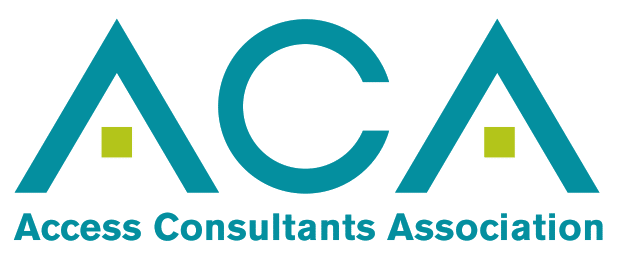Access can be something as straightforward as locating accessible parking spaces near a building entrance, making sure that an entrance door opens automatically or has a door that’s easy to see and use for everyone.
Access can involve a lot of different things including many that we may never notice until we need them. Like high contrast signs that are easy to read, a handrail on stairs that is easy to grip or flooring surfaces that reduce noise.
Sometimes the smallest change can make the biggest difference. Such as a low height counter or a table designed with enough clearance for the armrests of a wheelchair or a step at a building entry. This detail may mean the difference between going out for dinner or having to stay home.
What is the Access Industry?
The access industry consists of a range of stakeholders who are responsible for ensuring that the design and development of environments are accessible to everyone.
The access industry originated from the need to support the specific needs of people with disabilities to access all areas of life, including the built environment, communication systems and employment, as well as social and economic systems.
Increasingly however, the access industry consists of stakeholders who are committed to supporting and incorporating the principles of Universal Design into their work. This shifts the emphasis from people with disabilities to considering the diverse needs of all people, in supporting useable environments for everyone.
Key stakeholders in the access industry include access consultants, architects, designers, building surveyors, social and statutory planners, project managers, access workers, government, business and individuals with an interest in improving environments for all.
Access Consultants Association (ACA)

ACA is a national membership-based association for people working to achieve accessibility of the built environment for all
The Access Consultants Association (ACA) is Australia’s peak national body for access consultancy and a major partner in advancing equity of built environmental accessibility for people with disability.
ACA is a voluntary membership-based organisation and has a range of membership levels that support people working to improve access to the built environment.
Professionals wishing to operate effectively as Access Consultants in Australia and achieve status as either an Associate or Accredited Member of ACA, must meet specific criteria including holding a qualification as an Access Consultant. This includes either the Certificate IV or Diploma of Access consulting.
Since the Disability Discrimination Act was introduced, Local, State and Commonwealth Governments and Agencies, the building industry, and owners and managers of premises and facilities have increasingly sought expert advice on proper accessibility for people with disability. Consistent, current, and accurate advice is needed, and ACA was established to help ensure that this will be available.
Accredited membership of ACA is recognised by Councils, government departments and organisations around Australia as the benchmark for expertise as an access consultant and they will only accept advice from an Accredited Access Consultant if they are wishing to gain confirmation of compliance under relevant access legislation as well as gain an understanding of the principle of Universal Design in the built environment. For further details go to www.access.asn.au
What is Universal Design?
Universal Design is a design philosophy that ensures that products, buildings, environments and experiences are innately accessible to as many people as possible, regardless of their age, level of ability, cultural background, or any other differentiating factors that contribute to the diversity of our communities.
Universal Design can be applied to all fields of design, including but not limited to product design, interactive design, architecture and urban planning.